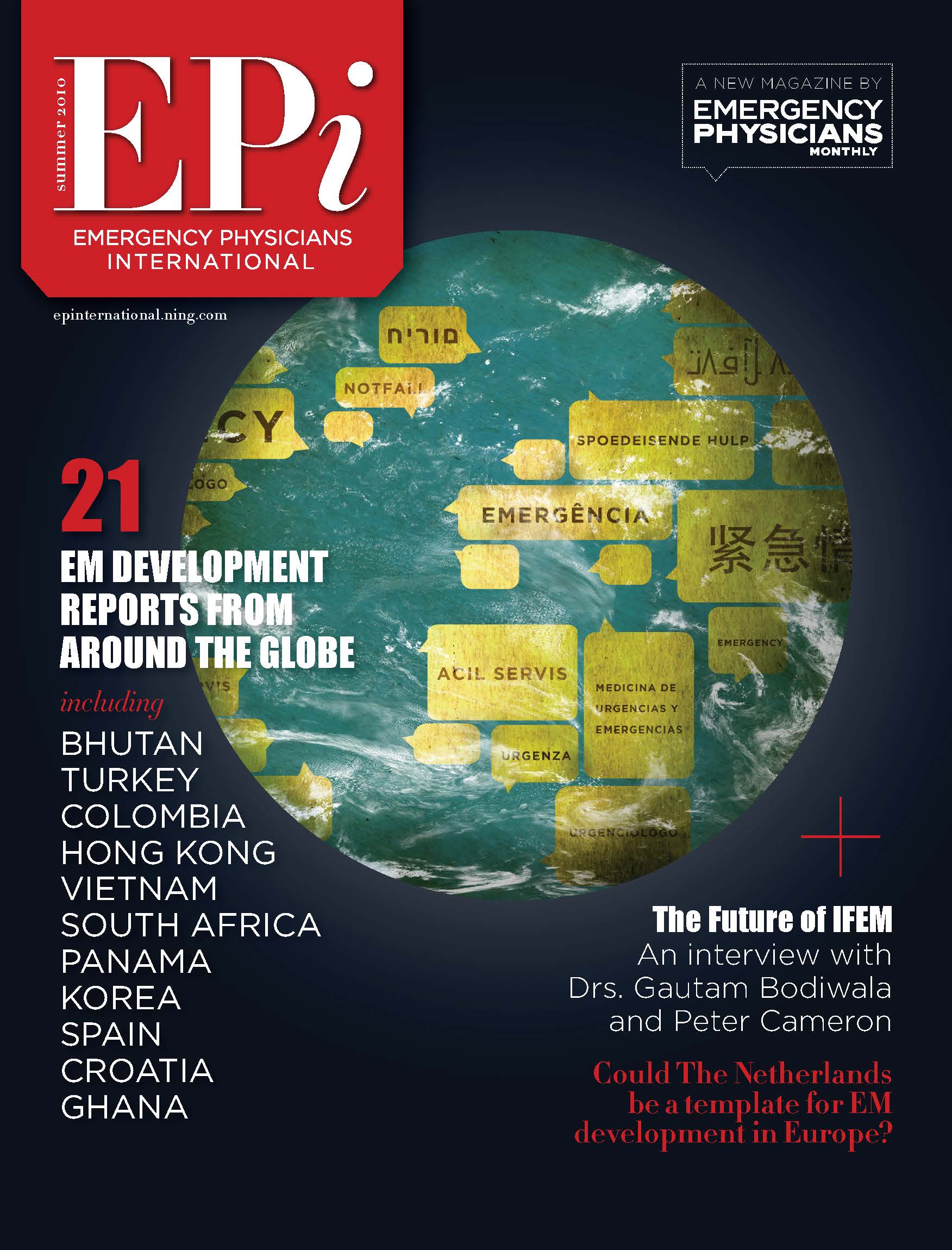Ending Violence Against EMS: A Position Statement of the South African EMS Safety Symposium
Authors
Lloyd Christopher (BTech EMC, MTech EMC, HDE)
Dr Navindhra Naidoo (BTech EMC, HDE, MPH, PhD)
Stephen Harrison (BTech EMC, BA, LLB, LLM, MPH)
Background
There is an escalating prevalence of violence against health care workers. This phenomenon is nuanced when emergency medical service (EMS) pre-hospital care providers are concerned, as they endure a particular vulnerability/exposure to violence. Such attacks (to which students are also vulnerable) alter the emergency care worker role from that of rescuer to that of the victim. Apart from such role-confusion, the impact is that service delivery to vulnerable communities is affected, as EMS organizations attempt to reduce their vulnerability. This situation is counter-productive to reducing the emergency care burden and deserves stakeholder participation toward sustainable solutions.
The Cape Peninsula University of Technology’s (CPUT), Department of Emergency Medical Sciences, in collaboration with the National Department of Health and Western Cape Government (WCG), hosted a national EMS Safety Symposium with the following goals:
—To foster a community of interest in violence against the EMS with a view to developing a national community of practice.
—To advocate for the protection of health care professions as crucial to the wellbeing of society.
—To develop a research agenda and promote research in violence against health care.
The EMS community from all provinces in South Africa converged at the Cape Peninsula University of Technology on the 05th December 2018 to deliberate on the phenomenon of violence against emergency care providers, in the context of violence against health care workers. Participants included delegates from National and Provincial EMS directorates, Heads of Provincial EMS Colleges from all nine provinces; heads of EMS departments from all South African universities; senior management of pre-hospital private and public EMS organisations; civil society organisations; occupational health and safety academics/practitioners; experts in the discipline of sociology, criminology and psychology; City of Cape Town Community Safety; National Prosecuting Authority.
In discussing the direct and vicarious traumatisation experienced by EMS providers, the panellists and delegates to the symposium unanimously endorsed the following position statement:
EMS SAFETY SYMPOSIUM POSITION STATEMENT
EMS is the entry point for many patients into the health system, and plays a critical role in attaining universal health coverage. The growing number of attacks on EMS personnel in South Africa jeopardises the integrity and reliability of EMS to the detriment of the whole of society. It compromises on-scene care, causes physical and psychological harm to staff, demoralises staff, takes emergency vehicles out of service, and increases response times. It also breaks down trust between communities and EMS personnel.
Addressing these issues cannot be business as usual. A collaborative response is needed between communities, civil society, public and private EMS services, business, government authorities, and political leaders in addressing this issue as a matter of urgency.
Solutions must protect and advance the rights of every person not to be refused emergency medical care, the right of everyone to freedom and security of the person, and the rights of emergency medical personnel to a safe working environment. Withdrawal of services is not a defensible option. We must work together to create a safe and supportive environment for EMS workers to provide, and members of communities to receive, emergency medical services as needed.
Threats to EMS safety require a multi-faceted response, with the commitment and active involvement of parties from relevant sectors – including civil society, public and private health services, policing, community safety, the justice system, education, business and others. Most importantly, initiatives to promote community safety must emerge from, and be owned by, the people most directly affected – communities and EMS personnel. EMS management and emergency care providers must give expression to such initiatives, thereby building agency and resilience and reducing learnt helplessness. These initiatives must be supported by active and visible political leadership at local, provincial and national level.
Action is required in the short-term to immediately improve protection to EMS personnel, and in the medium term, to interrupt cycles of violence which serve to perpetuate the same. The enabling context for the problem of violence in our communities relates most fundamentally to continued inequity which is endemic to South African society.
The following actions must be prioritised:
engaging with EMS staff to understand their needs and how they can be better supported to do their jobs most safely and effectively;
improving public awareness of the services that EMS provides and the importance of linking EMS safety to the ability of the health system to deliver care timeously and effectively;
improving mutual understanding and collaboration between EMS and communities, focusing in particular on building relationships between EMS providers, neighbourhood watches and community policing forums;
co-creation of knowledge and building partnerships with communities;
empowering communities to better support EMS personnel entering communities, including improved communication networks and first responder training which is integrated into existing community structures;
ensuring that EMS is actively represented on intergovernmental structures that are responsible for planning and implementing safety initiatives within cities and their communities;
formalising arrangements where necessary e.g. through agreements/MOUs between EMS and Police to strengthen the responsiveness of the Police to meet the needs of the EMS;
ensuring that the agencies responsible for policing and security perform the role of protecting EMS personnel, so that EMS can get on with their primary role of providing care to their patients;
creating a much more detailed and integrated centralised data system to enable evidence-based security and support interventions;
developing an appropriate set of qualitative and quantitative indicators and methods to monitor the success or otherwise of interventions and to learn from the ground up;
positioning EMS organisations as learning organisations to identify pockets of effectiveness to allow for lessons to be more broadly shared through collaborations;
investing in the best technological interventions to facilitate rapid intervention for EMS personnel at risk;
improving reporting of incidents within services to ensure that their health and mental health needs are taken care of, and to the justice system to enable responses to take place, and support for staff throughout the criminal justice process;
improving proactive and reactive provision of mental health services and programmes to EMS staff and other emergency personnel;
acknowledging that the HPCSA has a role to play in advocacy to improve protections that the HPCSA can offer to practitioners, including continuous professional development recognition for mental health courses;
advocacy for more effective justice interventions, including investigation, conviction, punishment and rehabilitation of offenders, and working towards the creation of specific offences;
advancing the research agenda on the nature of the problem and appropriate interventions – ensuring that knowledge generated is fed back into EMS education and management to inform minimum standards;
urgently developing a National Policy on EMS Safety to guide responses across all provinces and municipalities – which takes into account the voices of communities and marginalised groups;
developing a communication strategy – including responsible dissemination strategies to reach members of the profession and the community at large;
promoting performance monitoring and accountability in relation to safety;
working towards development of a ‘backbone organisation’ to hold the strategy together;
periodic updating of this position statement and feedback to the EMS and other communities.
Acknowledgements:
We acknowledge the contribution of all symposium delegates, and in particular gratefully acknowledge the expert inputs of the following: the Hon. Deputy Minister of Health, Dr M Phaahla; Dr S De Vries; Mr L Malotana; Mr I Bell; Dr S Boyd; Ms S Maake; Ms A Tamboer; Prof A Collins; Ms G Arendse; Mr A Rhebock; Ms L Evans; Prof H Ibsen; Ms M October; Prof E Mantzaris; Adv Z Khan; Prof L Artz; Adv L Africa; Mr L Lotz; Mr S Harrison; Mr M Williams; Mr T Ferrar; Mr J Meyer; Prof R De La Harpe; Mr R Booley; and Mr S Taylor.







